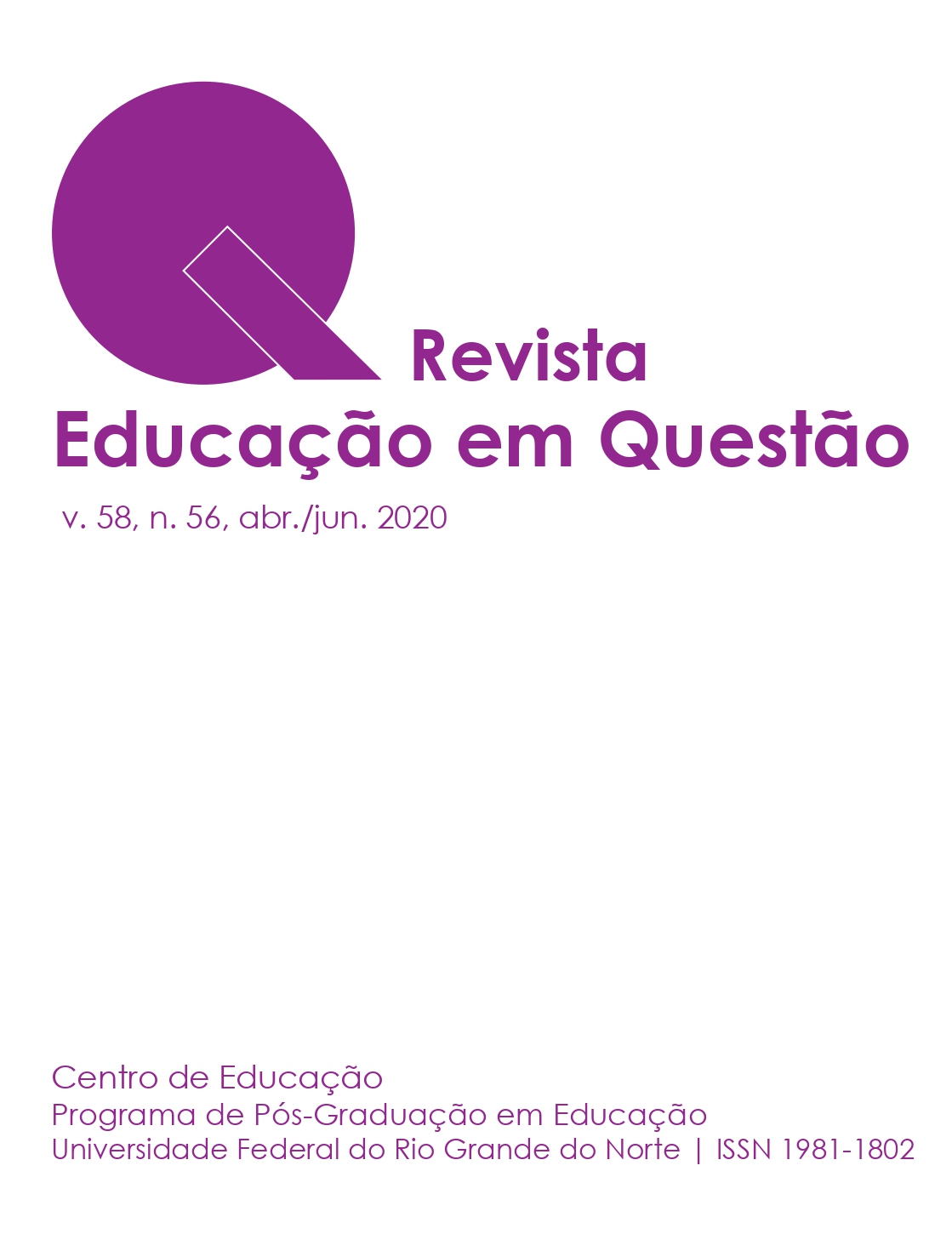Philosophical collocks as a means of improving learning in Philosophy for students in the first series of High School
DOI:
https://doi.org/10.21680/1981-1802.2020v58n56ID20387Keywords:
Philosophy teaching. Learning. Educational innovation. Colloquia.Abstract
This work seeks to offer pedagogical mediation to 9th grade students at a private school, in order to improve the understanding of the concept in relation to politics, such as: knowledge, ethics and morals, in the first grades of high school in the discipline of philosophy. To meet this objective, the Philosophical Colloquiums were developed as a didactic strategy, as it is a means of developing pre-defined themes, with exhibitions, debates and the search for decision-making. An initial survey was carried out to find out what the 9th year students' previous knowledge of politics, from a philosophical perspective, the planning of the colloquia with the invited speakers, the conduct of the colloquia, the monitoring and the final evaluation. Bringing as a result the interest of students to participate in colloquia, discussions and questions, giving an answer to the ability to apprehend systematic content of the curriculum of high school in a pleasant and effective way.
Downloads
References
BRASIL, Secretaria de Educação Fundamental. Parâmetros curriculares nacionais: terceiro e quarto ciclos: apresentação dos temas transversais / Secretaria de Educação Fundamental. – Brasília: MEC/SEF, 1998. 436 p.
BRASIL, Ministério da Educação - Secretaria de Educação Média e Tecnológica. Parâmetros Curriculares Nacionais: Ensino Médio. Vol. IV, Ciências Humanas e suas Tecnologias, Brasília: MEC/SEMTEC, 2000.
BRASIL. Lei nº 9.394 de 20 de dezembro de 1996. Estabelece as Diretrizes e Bases da Educação Nacional. Diário Oficial [da] União, Poder Executivo, Brasília, DF, 23 de dezembro de 1996. Seção 1, p. 27833.
CIRINO, Maria Reilta Dantas. Filosofia com criança: estratégia para o pensar bem infantil. In: MATOS, Junot Cornélio; COSTA, Marcos Roberto Nunes. Ensino de Filosofia: questões fundamentais. Recife: Editora UFPE, 2014
ESQUISANI, Valdecir Antônio. Mundo Jovem – Um Jornal de ideias. Ensinar a Pensar. Porto Alegre, Editora da PUCRS, n° 313, p. 19. 2001.
FLECHSIG, K e SCHIEFELBEIN, E. Vinte modelos didáticos para América Latina. Series: Colección Interamer. Washington, v. VI, p. 72. 2003.
GAMBIM, Pedro. Mundo Jovem – um Jornal de ideias. O que é filosofia?. Porto Alegre, Editora da PUCRS, nº 303, p. 16, fevereiro. 2000.
LORIERI, Marcos Antônio. Filosofar com criança: possibilidades. Contribuições de Matthew Lipman. In: Matos, Junot Cornélio; Costa, Marcos Roberto Nunes. Ensino de Filosofia: questões fundamentais. Recife: Editora UFPE, 2014.
KOHAN, Walter Omar. Filosofia para crianças. Rio de Janeiro: Lamparina, p. 12, 2008.
Downloads
Published
How to Cite
Issue
Section
License
The Journal Education in Question shall retain the copyright in all articles that it publishes.
The authors and co-authors of articles and book reviews, published in the Journal Education in Question, shall wait for at least 1 (one) year before they are allowed to submit new works for publication.






